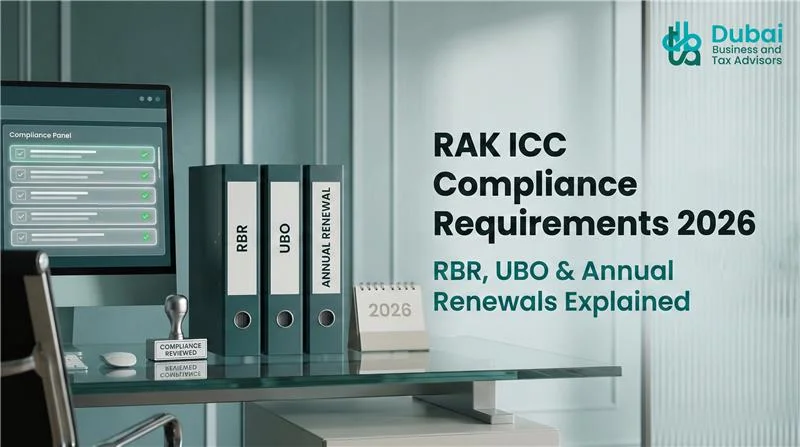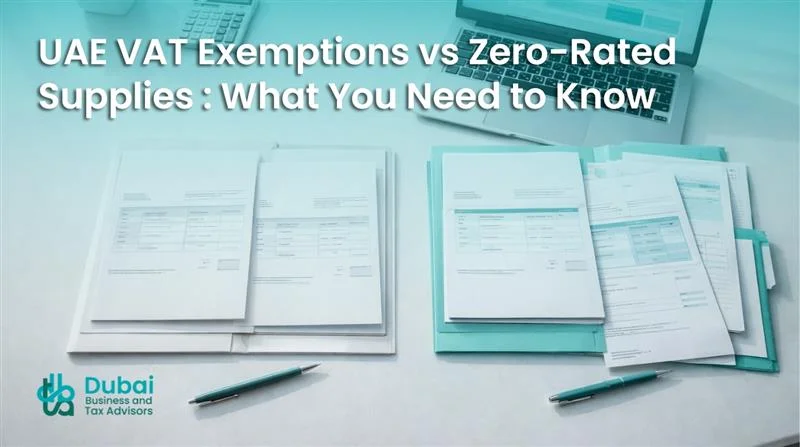Secure Your UAE Property Investment with Confidence
Looking to buy property in Dubai or anywhere in the UAE? At Dubai Business & Tax Advisors (DBTA), we make your property journey secure, transparent, and stress-free. With Dubai’s real estate market recording AED 411 billion in transactions in 2023 and delivering average rental yields of 7–12%, the UAE continues to be one of the best places to buy property globally.
Whether you are a first-time buyer or an experienced investor seeking the best property to buy in Dubai, our experts guide you at every step from legal checks and compliance to securing the right property at the right price.

- More than 10 years of experience in UAE and UK markets
- Over 1,000 detailed valuations completed successfully
- Qualified tax and finance specialists who understand local laws
- Clear, reliable insights that help you make confident decisions
Why Owning Property Matters for Your Business
Every successful business eventually reaches a stage where renting no longer feels like the smartest option. Leases go up, landlords set the rules, and you’re left paying for something that never really belongs to you. That’s why many companies make the shift to buying property in Dubai or elsewhere in the UAE. It transforms an expense into a lasting investment.
Think of it this way: when you buy business property, you’re not just securing a roof over your head. You’re building equity, creating stability, and sending a message to clients and partners that your company is here to stay. In a market as strong as Dubai where real estate deals exceeded AED 411 billion in 2023 and rental yields in key areas reach 7–12%, the decision to own can directly impact growth and profitability.
For businesses expanding into Abu Dhabi, Sharjah, or Downtown Dubai, ownership also offers something renting never can: complete control. You decide how to use the space, how to brand it, and how to maximize its value. Some owners even rent out part of their property to generate additional income while operating from the same address.
The Business Case for Buying Property
- Financial Security: Property becomes a long-term asset that grows in value.
- Cost Stability: No sudden rent hikes or restrictive leasing clauses.
- Credibility Boost: A permanent address signals trustworthiness to clients and banks.
- High ROI: Prime properties often appreciate by 20–30% annually, alongside strong rental income potential.
- Flexibility: Customize your space without landlord restrictions.

Our Range of Property Buying Services
Buying property in the UAE isn’t always straightforward. The truth is, it’s easy to get lost in the paperwork, the legal terms, and endless options on the market. That’s where we step in. At Dubai Business & Tax Advisors, we focus on making the process clear, manageable, and most importantly, safe for you.
We start by understanding what you’re really looking for whether it’s your first apartment in Dubai, a family villa in Sharjah, or a commercial property that strengthens your business presence. Once we know your goals, we map out the steps, explain your options, and walk beside you until the purchase is complete.
How We Help
- Finding the right fit: we shortlist properties that actually match your budget and plans, not random listings.
- Checking the legal side: ownership papers, title deeds, and all compliance checks done before you sign anything.
- Giving you real market insight: what areas are rising, where you’ll get better rental yields, and what to avoid.
- Helping with finance: support with mortgages, flexible payment plans, and investment structuring.
- Taking care of negotiations: dealing with sellers or developers to secure fair terms.
- Managing the paperwork: from contracts to NOCs and transfers, we keep it smooth and transparent.
- Staying with you until the end: from your first call to the day the property is legally yours.
Why DBTA Is the Right Partner for Buying Property in the UAE
Buying property is one of the biggest financial moves you’ll ever make, and having the right advisor by your side can save you time, stress, and money. At Dubai Business & Tax Advisors (DBTA), we focus on giving you practical guidance rather than pushing generic options. Our team works with you from the very beginning, understanding your budget, your plans, and what kind of property makes sense for you all the way through to the final transfer.
- Full support from first call to handover
- Independent advice, not influenced by developers
- Straightforward fees with no hidden surprises
- A team with both UK and UAE expertise
If you’re unsure where to start, we’ll walk you through the process step by step so that buying property in Dubai, Abu Dhabi, or Sharjah feels simple and secure. Buying property is one of the biggest financial moves you’ll ever make, and having the right advisor by your side can save you time, stress, and money. At Dubai Business & Tax Advisors (DBTA), we focus on giving you practical guidance rather than pushing generic options. Our team works with you from the very beginning, understanding your budget, your plans, and what kind of property makes sense for you all the way through to the final transfer.
What Makes Us Different
Expertise
With years of experience in the UAE market, we know how to balance real estate choices with tax and compliance advice, so your purchase is safe and profitable.
Ease
We take care of the difficult parts of contracts, checks, negotiations leaving you free to focus on choosing the right property.
Clarity
From explaining the benefits of buying property in Dubai to breaking down all related costs, we keep everything transparent, so you’re never caught off guard.
Process of Buying Property in Dubai and the UAE
Buying a property here is exciting, but it does come with a few steps you can’t skip. At Dubai Business & Tax Advisors (DBTA), our job is to make sure those steps are clear and that nothing catches you by surprise. We stay with you from the first search until the day the property is registered in your name.
Find the Right Property
We begin by talking through your plans. Is it a home, an investment flat, or maybe a commercial unit? Based on your goals, we shortlist real options in areas like Dubai, Abu Dhabi, or Sharjah, so you’re not wasting time looking at properties that don’t fit.
Legal and Document Checks
Before you commit, we will go through the fine print. That means checking ownership papers, title deeds, and making sure the property meets UAE rules. This step gives you peace of mind that you’re buying something secure.
Agree on Terms
Once you’ve chosen the property, we will help with the sales agreement (MOU). We review the terms, explain what they mean in simple words, and negotiate if needed, so the deal is in your favour.
Approvals and Payments
Here we handle things like getting the developer’s No Objection Certificate (NOC) and making sure payments or financing are arranged properly.
Transfer of Ownership
The final stage is registering the property with the Dubai Land Department or the relevant authority. When this is done, the property is officially yours. We don’t step away until you have the keys in hand.
Why Choosing the Wrong Property Can Hurt Your Business in Dubai
Buying the wrong property doesn’t just mean losing money; it can affect your business in ways many owners don’t realise until it’s too late. A poor decision at this stage can tie up your capital, restrict growth, and even damage your reputation.
Common Risks Businesses Face with Poor Property Decisions
- Financial Strain: Overpaying for a property or taking on unsuitable financing can drain cash flow and reduce working capital.
- Legal Complications: Buying property without clear title deeds or compliance checks may expose you to disputes, fines, or even ownership challenges.
- Operational Disruptions: Choosing the wrong location can make daily operations harder, affect logistics, and impact your ability to attract clients or staff.
- Loss of Credibility: A business tied to an unstable or disputed property often appears unreliable to investors, banks, and partners.
- Missed Growth Opportunities: Funds locked in a poorly performing property mean less capital available for expansion or innovation.
- Unexpected Costs: Hidden service charges, high maintenance fees, or poor construction quality can quickly eat into your profits.
A mistake like this doesn’t go away quickly; it can follow your business for years. That’s why it pays to work with advisors who know the UAE market inside out before you commit to buying property in Dubai, Abu Dhabi, or Sharjah.


Trusted Guidance for Buying Property in Dubai & UAE
Thinking about buying property in Dubai? The market has topped AED 400B+ in annual transactions, with typical rental yields around 7–12% and prime districts recording ~20–30% yearly appreciation. We’ll help you act confidently without guesswork.
From shortlist to handover, DBTA handles due diligence, negotiation, and registration, so your UAE property purchase stays secure and compliant.
- 10+ years guiding buyers; 1,500+ deals assisted
- Independent, developer-neutral advice with transparent fees
- Legal, tax & title checks for buying property in the UAE
FAQs – Buying Property in Dubai
Is buying property in Dubai a safe investment in 2025?
The truth is, Dubai still offers one of the strongest property markets globally. Annual sales are crossing AED 400 billion, and some areas are showing rental yields between 7–12%. On top of that, prime districts like Downtown Dubai and Palm Jumeirah often see double-digit appreciation each year. For many investors, this mix of growth and stability is hard to ignore.
Can a foreigner really own property in Dubai?
Yes, foreigners can fully own property in designated freehold areas. These zones include popular spots like Dubai Marina, Business Bay, and Downtown Dubai. Ownership rights are very straightforward; you can live in the property, rent it out, or even sell it later. That’s why Dubai stands out compared to many global markets that limit foreign ownership.
What’s the biggest advantage of buying property in Dubai instead of London or New York?
One clear benefit is the tax structure. Unlike London or New York, there’s no capital gains tax, no inheritance tax, and no property tax in Dubai. Add to that, the high rental demand and steady price growth, and you can see why global investors find it more profitable. Plus, the buying process here is usually faster and less bureaucratic.
What is the minimum budget I need to buy property in Dubai?
It depends on what and where you’re looking for. Apartments in up-and-coming areas may start from around AED 500,000, while luxury villas in prime locations can cost millions. Many off-plan projects also allow buyers to get started with smaller down payments and flexible installment plans, making it easier to enter the market at different price points.
How does the property buying process in Dubai actually work?
The process is simpler than many expect. First, you pick up the property. Then you sign a sales agreement, apply for the developer’s No Objection Certificate (NOC), make the payments, and finally transfer ownership through the Dubai Land Department. Most buyers prefer to work with an advisor to avoid mistakes and make sure everything runs smoothly.
Are there risks when buying property in Dubai?
Like any investment, yes, there are risks. The most common are not checking title deeds properly, buying from unknown developers, or underestimating service charges. Some buyers also forget to factor in location demand. The key is due diligence and using experienced advisors who know how to avoid these pitfalls.
Can I really find cheap property in Dubai?
Yes, but “cheap” doesn’t always mean low quality. Areas such as Dubai South, JVC, or Al Furjan offer lower entry prices compared to Downtown or Marina. Many first-time buyers start there because they’re affordable but still deliver decent rental returns. The important part is knowing the community’s long-term growth potential.
Is it smarter to buy in Dubai or Abu Dhabi?
It depends on what you want. Dubai has higher liquidity and faster-moving markets with strong rental yields, often 7–12%. Abu Dhabi is steadier, with long-term projects and more family-focused developments. Some investors actually spread across both, so they get the income of Dubai and the stability of Abu Dhabi.
Do I need a lawyer to buy property here?
You don’t have to, but it’s strongly advised. A lawyer checks the contracts, verifies ownership, and protects you against hidden issues. Many foreign buyers skip this to save money, but if something goes wrong with documents or ownership, the cost is far higher than hiring a lawyer upfront.
Can property ownership get me a visa in Dubai?
Yes. Buying property in Dubai worth at least AED 750,000 can qualify you for a 2-year visa. If you invest AED 2 million or more, you may even be eligible for a 10-year Golden Visa. That’s why property investment here isn’t just about returns, it can also provide long-term residency benefits.
What should I consider before buying my first property in Dubai?
Start with your goal. Do you want a home to live in, or is it purely for investment? Then look at location, service charges, developer reputation, and budget. First-timers sometimes jump in quickly, but taking time to research and talk to experienced advisors makes a big difference.
Is it hard to buy your first investment property in Dubai?
Not really, but it can feel confusing if you’re new. The good news is that Dubai’s process is quite structured, and as long as you follow the steps, it’s straightforward. The challenge is choosing the right property type and area, which is where good advice saves you from costly mistakes.
What documents do first-time buyers need?
The process is simple. You’ll need your passport, and if you’re a resident, your Emirates ID. If you plan to finance through a bank, they may ask for proof of income or bank statements. Compared to other countries, the paperwork here is refreshingly light, which makes Dubai attractive to investors.
How much should I budget for my first property?
Besides the purchase price, set aside money for extras: 4% Dubai Land Department fee, agency commission (around 2%), and service charges. For a property of AED 1 million, you should expect roughly AED 70–80k in upfront costs. Knowing this before you start prevents unpleasant surprises later.
Should I buy an off-plan or ready property for my first deal?
It depends on your timeline. Off plan is cheaper upfront and lets you pay in installments, but you’ll wait for a handover. Ready property costs more but starts generating rental income immediately. If you’re investing for cash flow, go ready. If you’re looking for capital growth, off plan might suit you better.
How do I choose the best area as a first-time buyer?
Look at both current demand and future development. For strong rentals, Downtown Dubai, Marina, and Business Bay are proven. For affordability, JVC, Dubai South, or Al Furjan are popular choices. First-time buyers should also think about resale potential, not just initial cost, when deciding.
What mistakes do first-time buyers often make?
The biggest mistakes are buying based only on low price, ignoring service charges, and not checking developer history. Some buyers also forget to look at legal details like title deeds. These can all be avoided by doing proper research and leaning on professional guidance.
Do I have to live in Dubai to buy property here?
Not at all. Many investors buy it while living abroad. You can handle most steps online or appoint someone through a Power of Attorney. This flexibility is one reason Dubai is so popular with overseas investors. It’s designed to welcome global buyers.
Can I buy property in Dubai without using an agent?
You can, but it’s risky. First-time buyers often don’t know what to look for in documents or contracts. A registered agent or advisor protects you from fraud, negotiates better, and ensures the process is compliant. Without one, you carry all the responsibility—and possible mistakes yourself.
How long does the buying process usually take?
On average, it’s 30–45 days from signing the sales agreement until transfer at the Dubai Land Department. This includes getting the developer’s NOC and processing payments. Sometimes it’s faster, especially with ready properties. Delays happen if documents aren’t in order, but with the right advisor, it’s usually smooth.
Can I buy a commercial property in Dubai for my business?
Yes, you can. Dubai allows investors to buy offices, retail units, and even warehouses in designated freehold areas. Owning your own commercial property gives you control, saves you from rising rents, and adds long-term value to your balance sheet. It’s especially attractive in high-demand districts like Business Bay or JLT.
What’s the main benefit of buying business property in Dubai?
The biggest advantage is stability. Instead of paying rent that goes up each year, you own an appreciating asset. Many companies also find that owning enhances their credibility with clients and banks. And because Dubai offers a tax-friendly environment, all the income from leasing or resale stays with you.
How is buying commercial property different from buying residential?
Residentials are often about lifestyle or rental income, while commercials are about business operations and cash flow. Service charges for commercial units are usually higher, and the choice of location is critical. A retail shop in Downtown, for example, performs very differently from a shop in a low-traffic area.
Can companies get financing to buy property in Dubai?
Yes, several banks provide financing for commercial property, though the requirements are stricter than residential. Most lenders cover 60–70% of the property’s value. Your company’s financials, credit history, and the type of property matter. It’s worth comparing options carefully, as terms vary between banks.
Can a foreign company buy business property in Dubai?
Yes, foreign companies can purchase commercial property, especially in freehold zones. The process is clear but involves compliance with UAE company and property laws. That’s why many firms work with advisors to make sure the deal is structured properly, both for tax purposes and for smooth ownership transfer.
What risks are linked to buying commercial property in Dubai?
The most common risk is choosing a property in an area with low demand. Another is underestimating operating costs, like high service charges or fit-out expenses. Poor location decisions can also hurt foot traffic or logistics. Careful market research is the best way to avoid these pitfalls.
Should I rent or buy property for my business in Dubai?
If your business is new or still testing the market, renting may give you flexibility. But if you’re planning long-term, buying saves you from escalating rents and builds equity. Many established companies buy property as part of their growth strategy, turning rent money into an investment.
Can I buy commercial property without setting up a company?
Yes, individuals can buy commercial property purely as an investment. For example, you can own an office unit and lease it to businesses without setting up your own company. But if you intend to use it for your own operations, you’ll need the right business license and approvals.
What’s the process for buying commercial property?
The steps are similar to residential: select the unit, sign the contract, apply for the developer’s NOC, make the payment, and register the transfer at the Dubai Land Department. Depending on the property type, there might be extra approvals. For example, certain retail units require fit-out permissions.
Which areas are best for buying commercial property in Dubai?
For offices, Business Bay and DIFC are top choices due to their central locations. For retail, Downtown Dubai and Dubai Marina attract heavy foot traffic. For logistics and warehousing, Al Quoz and Dubai Industrial City are popular. The right area depends entirely on your business needs.
Can I buy property in Dubai while living overseas?
Yes, you can. Many overseas investors complete the entire process remotely. Digital signatures, power of attorney, and international transfers make it straightforward. It’s common for expats or foreign investors to buy without even flying in, as long as they work with trusted brokers and advisors.
Do overseas investors pay property taxes in Dubai?
No, that’s one of Dubai’s main attractions. There’s no income tax, capital gains tax, or inheritance tax on property. The main costs are the 4% transfer fee to the Dubai Land Department and annual service charges. This tax-friendly system is why so many international investors choose Dubai.
Is it safe for expats to buy property in Dubai?
Yes, it’s very safe. The Dubai Land Department regulates all transactions, and RERA-certified brokers are closely monitored. Foreign buyers receive full ownership rights in freehold areas. As long as you do basic due diligence and work with reliable advisors, the risk of fraud is minimal compared to many other countries.
Can I buy property in Dubai if I already own property abroad?
Yes, owning property elsewhere doesn’t affect your eligibility here. Many global investors add Dubai to their portfolios because it balances high yields with strong appreciation. In fact, spreading investments across different countries is often a smart way to manage risk and boost long-term returns.
Do expats get residency through property ownership?
Yes, property investment can qualify you for a residency visa. If the property’s value is at least AED 750,000, you may apply for a 2-year visa. For AED 2 million or more, you could be eligible for the 10-year Golden Visa. This is one reason property in Dubai is so popular with expats.
What challenges do overseas buyers usually face?
The main challenges are understanding local regulations, verifying developers, and handling payments across borders. Some buyers also struggle with service charge structures or currency conversions. Working with an advisor makes these issues manageable, as they guide you step by step and ensure there are no surprises.
How does DBTA help overseas investors buy property?
We act as your on-the-ground partner. From sourcing properties and checking legal documents to negotiating and completing transfers, DBTA manages the process for overseas clients. We also assist with opening bank accounts, handling paperwork, and making sure everything complies with UAE regulations, so you can invest with confidence.
Can overseas investors buy off-plan property in Dubai
Yes, and many prefer it. Off-plan projects often have smaller upfront payments and flexible installments, which suit overseas investors who don’t need immediate rental income. By the time the project is completed, values may have already been appreciated, giving investors a head start on returns.
Do I need a UAE bank account to buy property from abroad?
Not strictly, but it helps. Payments can be made from international accounts, but having a local bank account simplifies transfers, mortgage approvals, and ongoing expenses like service charges. Many overseas investors open one for convenience, and advisors like DBTA can assist with the process.
Is buying property in Dubai profitable for overseas investors?
Yes, it generally is. Rental yields of 7–12% are common, and capital appreciation in high-demand areas often reaches 10–20% annually. Combined with Dubai’s tax-free structure, these returns are difficult to match elsewhere. That’s why Dubai consistently ranks among the top global property investment destinations.
Our Trusted Partners





Our Client Testimonials
Our clients, ranging from startups to multinational corporations in Dubai, benefit from our comprehensive and strategic approach to business advisory. Our team of highly qualified business and tax advisors takes pride in ensuring regulatory compliance, operational efficiency, and sustainable long-term success for businesses across various industries





Khalid Al Rashid
Layla Hassan
Omar Saeed
Noor Al Mazrouei
Faisal Hamdan
Connect with Reliable Dubai Business Consultants
Certified Chartered Accountants
Be stress-free with top-tier accounting and financial expertise in Dubai.
Ensure Data Confidentiality
Using advanced accounting technology and controls for data security.
Achieve Measurable Results
Making sure your financial strategy aligns with your goals and objectives.
Speak to an Expert! Call Now for a Free Consultation. +971568191060 or





